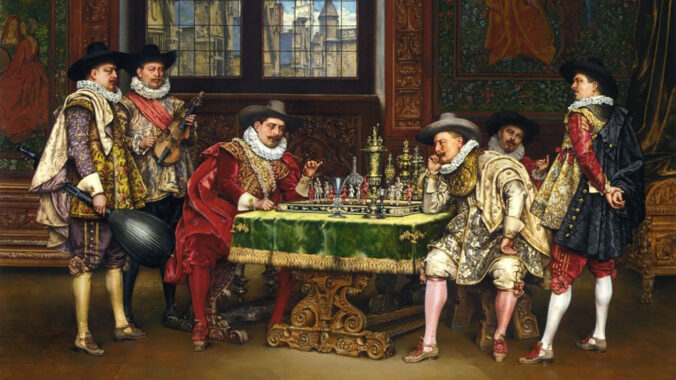After exactly 6,000 rapid games on chess.com, I’ve decided to take a break. What this means is still to be determined, but I got some interesting insights from this first burst into the game of chess.
As expected, after a fairly quick climb in my rating I reached what feels like an unmovable wall. That’s how it’s supposed to work: you keep winning against progressively better opponents until you find opponents that are better than you, and then you start losing. That’s how your rating gets determined. Mine found its plateau between 1300 and 1350, with eventual drops into the upper 1200s and one heroic jump beyond 1400 (which only lasted for a couple of games).
I’ve been playing many games and learning a few things, but if I want to really evolve I need to study (especially openings). And studying chess, at least for me, is not as fun as playing chess. It requires time and patience, and it comes with the knowledge that no matter how much I study my progress is going to be minimal in the great scheme of things. I’m too old and probably not sufficiently talented to learn enough to be competitive at any serious level. That doesn’t make me sad, it just doesn’t give me much incentive to put serious time into studying chess. A rating of 1300 is already beyond my initial expectations and I’m happy with that.
Another thing worth mentioning is the emotional aspect of playing chess. I was extremely surprised with the exhilarating highs and crushing lows that it elicits.
When you win, you get a profound sense of accomplishment. When a well-thought-out strategy unfolds as planned, and every move you make outmaneuvers your opponent, the satisfaction is immense. The thrill of predicting your opponent’s moves and laying traps that lead to victory can be incredibly rewarding. The sheer intellectual challenge of chess, combined with the rush of outsmarting an opponent, makes it one of the most exhilarating experiences a player can have.
When you lose, the sense of frustration is overpowering. The game demands intense concentration, patience, and foresight. A single misstep can unravel an entire strategy, leading to a swift and often unforgiving defeat. The disappointment of realizing that a mistake has cost you the game, especially after investing significant mental energy, can be overwhelming. This feeling is compounded by the fact that in chess, there are no elements of luck, only skill and decision-making. This means that when things go wrong, the responsibility lies squarely on the player’s shoulders.
Adding to the vexation, when you are playing online, there is the suspicion that sometimes your opponent may be cheating. The obvious cheaters are not a problem: they play so perfectly that the system clearly recognizes that they are being assisted by a computer, and they are soon banned. However, I have encountered too many people who play poorly at the beginning of the game, finding themselves at a clear and overwhelming disadvantage in the middle game, and then start playing like machines, every move perfect, with amazing tactical combinations several moves deep. Either they called a grand master to finish the game they started so ineptly or they decided to use computer help once they saw they couldn’t win the game by themselves. And because of the bad decisions they make at the beginning, the average precision for the whole game is not high enough to raise suspicion from the anti-cheating system. It’s very irritating.
I still highly enjoy playing chess. But I have decided to take a break for now. Will I study openings and come back toughened up and ready for a challenge? I don’t know yet. Will I not study and still return to the game, content with my current rating, and just be glad to play for fun without expecting any meaningful advancement? I don’t know yet. Will I never play chess again? I don’t think that’s a possibility.
